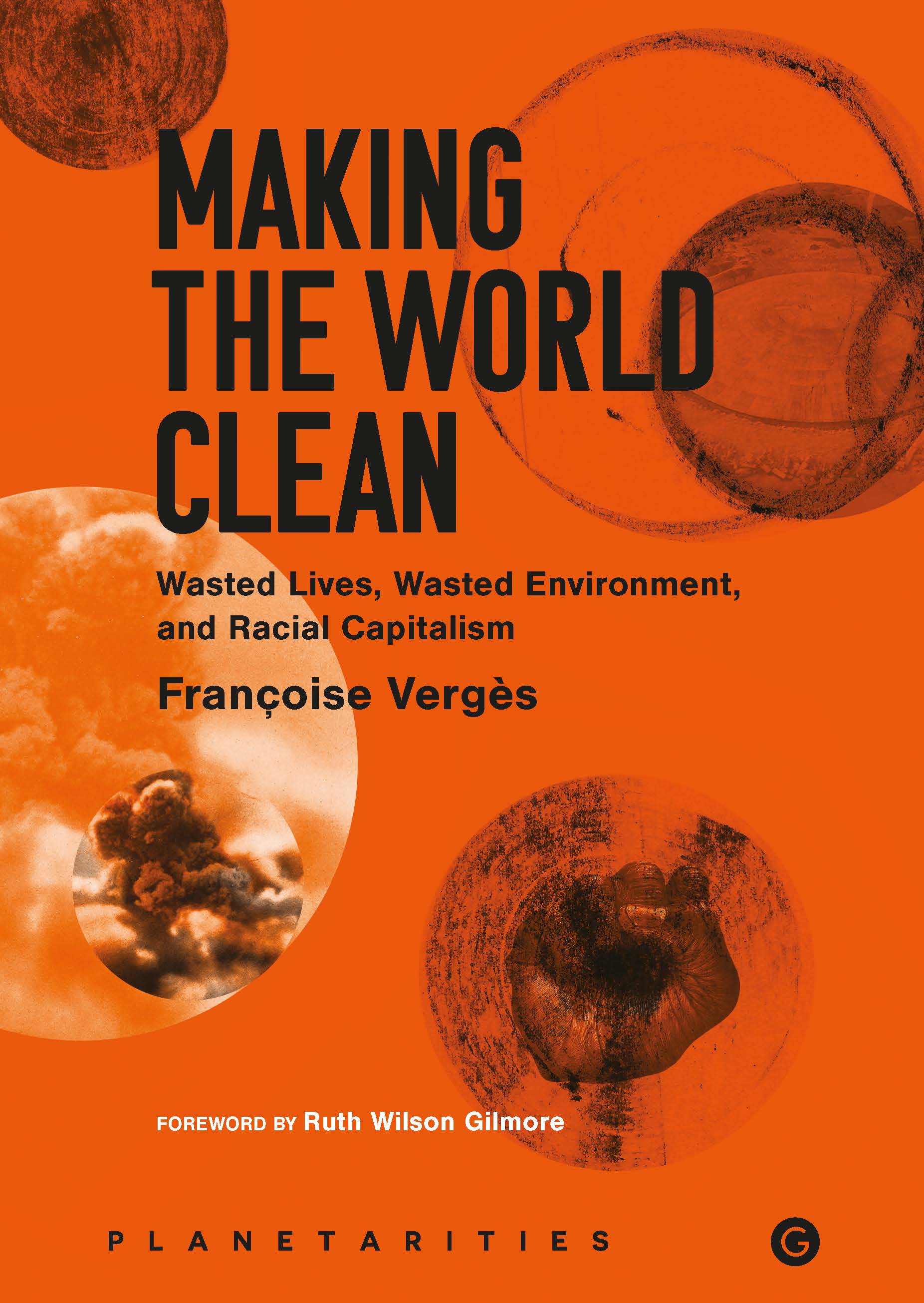Making the World Clean
Wasted Lives, Wasted Environment, and Racial Capitalism
Françoise Vergès
Publication
Foreword by Ruth Wilson Gilmore
In Making the World Clean: Wasted Lives, Wasted Environment, and Racial Capitalism, Françoise Vergès examines the racial and gendered politics of wasting lands, bodies, and resources and the organized deprivation of clean water, shelter, and access to health services—in other words, the structural denial, along racial lines, of vital needs. Through 38 short sections, she looks at the social relations that have made cleaning into drudgery and into a racialized, gendered, poorly paid job that is nevertheless necessary for any society to function. She concludes with the proposition of a feminist, decolonial, antiracist, anti-patriarchal, and anti-capitalist politics of cleaning. Or, simply put, of “decolonial cleaning.”
To Vergès, the structural denial of the elemental needs of women of color (sanitary pads, access to water, and privacy for basic washing), and why these needs are considered insignificant and trivial, shows how racism and class war are gendered. By examining the banal, the trivial, and the elemental, the author addresses cleaning as a necessity rather than the maintenance of a consumerist lifestyle, a condition of basic care of the body and the mind that is considered with indifference by racial capitalism, white environmentalism, and even, too often, by humanitarian organizations. She argues that by building “life-affirming institutions,” as Ruth Wilson Gilmore advocates, struggles against the whitening of cleaning create sites of freedom. “Decolonial cleaning” imagines cleaning as taking care of land, humans, plants, animals, and rivers, not seeking to discipline them or transform them into commodities or objects of conservation but cleaning as a practice dedicated to sustaining the living world.
Dalit women in India remove human excreta by hand from sewers. In the United States most cleaners are Black and brown women. In one angry, fell swoop Making the World Clean shows such phenomena to be neither accidental nor unintentional but the conscious product of racial capitalism. Françoise Vergès uncovers the violent, colonial social relations that make certain people cleaners of waste, while capitalism continues to waste lives and ecosystems. Capitalism won’t clean up its act, with the help of this book we can cleanse the world of capitalism.
Capitalism, colonialism, and patriarchy are all forms of power that survive by monopolising our imaginary of how to cure ourselves of the very problems that they create and disseminate among us. They cause war, misery, and environmental disasters and colonise the way we think of peace, happiness, and sustainability. In the same vein, and as Françoise Vergès shows so well in this book, they cause waste, dirt, and toxicity and shape our imaginary of cleaning and cleanliness. Her differentiation between “cleaning up” and “cleaning” grounds a powerful critique of this colonised imaginary. It should be said that in this environment of intellectual pollution reading Vergès is itself a form of decolonial cleaning of the mind.
